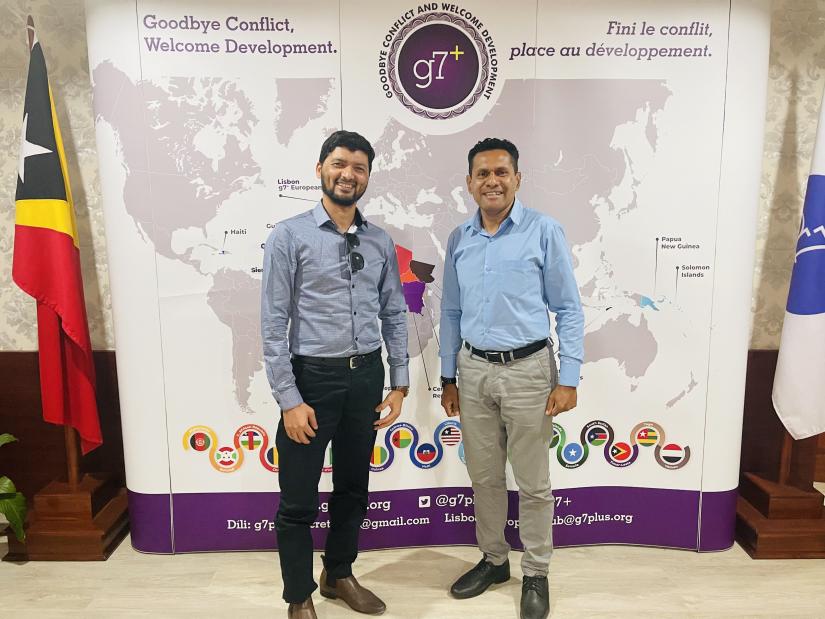PhD candidate Prakash Paudel is uncovering the role of donors in post-conflict peace.

Prakash Paudel is an Institute for Sustainable Futures (ISF) PhD candidate looking to uncover the complexities of post-conflict peace and development. His research delves deep into the world of international aid donors, focusing on the often-overlooked fragilities in nations recovering from conflict.
Prakash's research centres on a critical question: How can international aid donors better contribute to positive peace in post-conflict nations, and are they truly aware of the needs and underlying fragilities of these countries?
His in-depth analysis, with a specific focus on Nepal and Timor-Leste, uncovers the intricacies of post-conflict peace and development nexus. Prakash's personal connection to Nepal, a country that has experienced its share of conflict, fuels his dedication to this cause.
There is a big misconception to think post-conflict is only the presence of peace and the absence of conflict.
– Prakash Paudel, ISF
He has witnessed first-hand how donors, unaware of local fragilities, socio-economic exclusion, weak governance and transitional justice, inadvertently escalated tensions even after peace agreements had been reached.
“There is a big misconception to think post-conflict is only the presence of peace and the absence of conflict.”
Prakash explained that from his personal experiences in Nepal, he started thinking how “important it is for donors to be sensitive to such hidden post-conflict risks. My research explores such risks and how development can support peace rather than escalating the conflict.”
Prakash’s interest in the nexus between peace and development, guided him towards the ISF International Development team, where he eventually begun his PhD. Prakash considers it to be "one of the most transdisciplinary research teams across Australia."
“ISF's focus on sustainable transformations aligns with my vision of understanding complex issues from a sustainability perspective, making it the ideal environment my research. The approach has helped me uncover the sustainability of peace and development in post-conflict”, Prakash explained.
At the core of Prakash's research is the development of an Integrated Conflict Sensitivity Framework. This innovative framework helps donors consider the fragilities and root causes of tension in post-conflict regions.
His findings have shed light on the significance of addressing unequal power dynamics at the local level. The effectiveness of donors, Prakash's research asserts, hinges on their grasp of the local context and post-conflict fragilities.
Prakash recently had the privilege of representing ISF at the UTS Three Minute Thesis 2023 Finals, an experience that honed his presentation skills and allowed him to refine his ability to explain his research to a broader audience.
The training provided during this experience has been pivotal in his journey, helping him effectively convey the critical aspects and contributions of his research.
Through his work, Prakash is not only advancing his academic career but also illuminating the path towards a more nuanced understanding of post-conflict peace and development.

